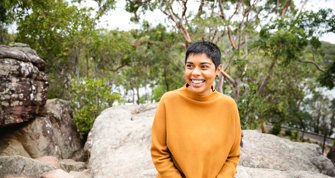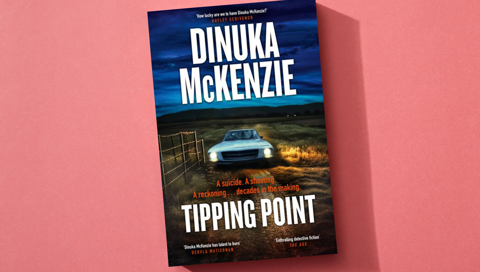Explore upcoming events

As May rapidly approaches, we are so excited to welcome you to the Festival and to introduce you to the writers who make it all worthwhile. To awaken your Festival spirit, we're got a series of Q&As to introduce some of the 2024 participants. Get to know them as we discuss their reading, their writing practice and the Festival theme, Take Me Away.
Dinuka McKenzie is the author of The Torrent, winner of the HarperCollins Australia 2020 Banjo Prize. Her latest novel is the third novel in the Detective Kate Miles series, Tipping Point. When not writing, Dinuka works in the environmental sector and volunteers as part of the team behind the Writers Unleashed Festival.
What kind of books do you get lost in while reading?
I read widely, but without a doubt my comfort read is crime fiction. Two cracking recent reads were What Happened to Nina by Dervla McTiernan and The Eleventh Floor by Kylie Orr. Both are masterclasses in how you up the ante and raise the stakes for your characters.
What books or writers inspire you?
I love books that can entirely pull the rug from under a reader and make you rethink everything you’ve read so far. To me, J.P. Pomare is brilliant at doing this and he’s an auto-read for me. It’s no surprise that I can’t wait to dive into his brand-new thriller, Seventeen Years Later, out in August.
What can readers expect from Detective Kate Miles in this third instalment?
Tipping Point, the third book in the series, focuses on Kate’s relationship with her brother, Luke, whose connection with his family has been strained for some years. The central tension running through each of the Detective Kate Miles books is that her profession, which she loves and is very good at, is also the thing that pits her against the needs of her family. In this book that theme is really ramped up when Luke ends up embroiled in a suspicious death forcing Kate to choose between her loyalties to the police force or the bonds of friends and family.
When writing, do you start with the murder?
I tend to start with the main twist I want to work towards and build the story (the crime, perpetrators and motivations) from there.
What do you love about writing crime fiction?
Often our first introduction to a perpetrator is on the evening news when things have already gone wrong. As a crime writer, I am interested in unravelling the thread of how people end up where they do. To think about the circumstances and decisions made (and not made) that led to a particular outcome, including how friends and family may have contributed to what occurred. Crime fiction allows writers to engage with the darker aspects of humanity and make readers ask themselves: How would I react in that situation?
What events are you looking forward to attending at the Festival?
The Sydney Writers' Festival program is always spectacular. I’m hoping to spend the Saturday at the Festival, catching a number of sessions including: Black Duck: A Year at Yumburra with Bruce Pascoe and Lyn Harwood, The Presence of the Past with Shankari Chandran and Yumna Kassab and Life Skills for a Broken World with Ahona Guha.
